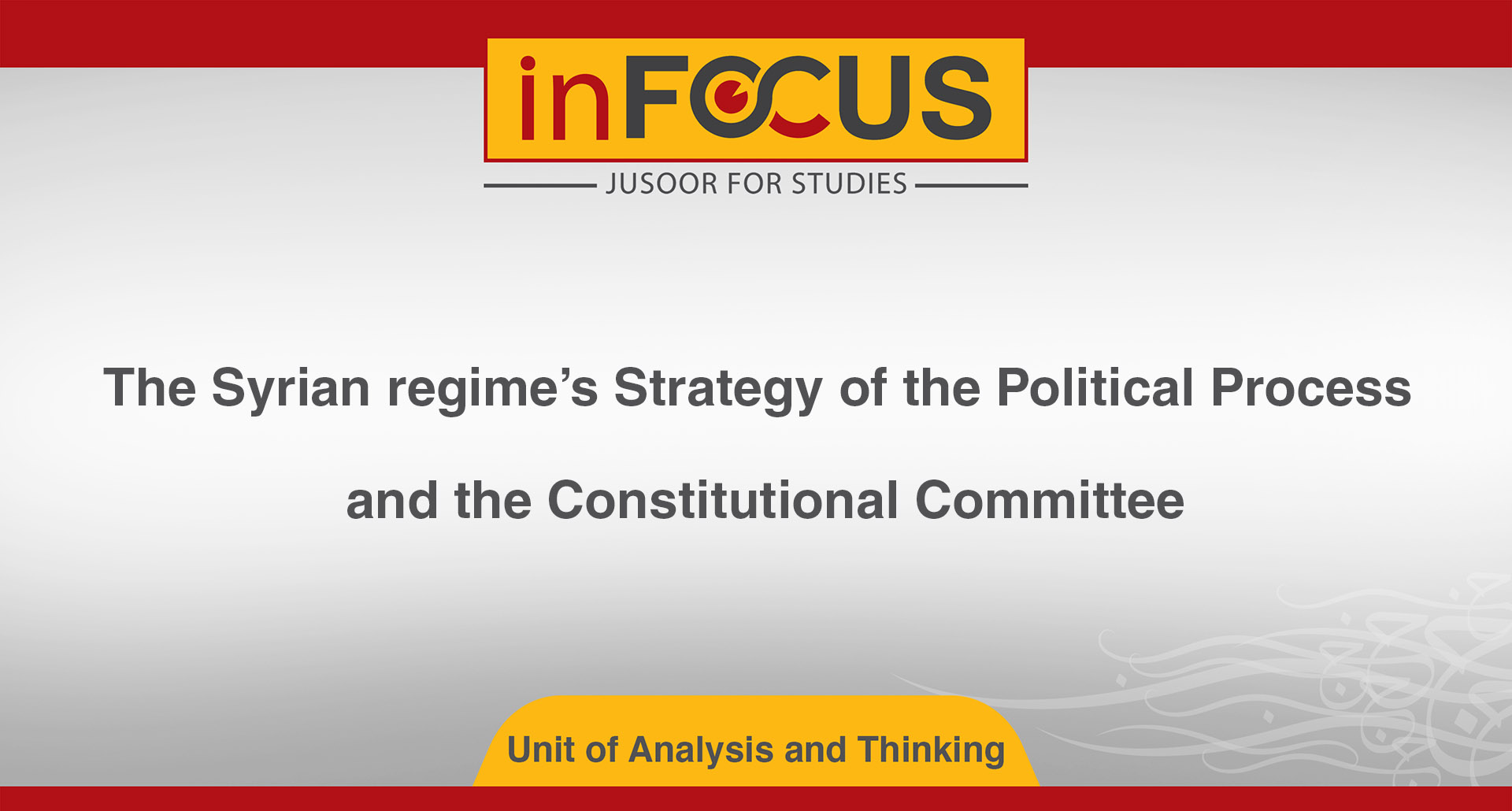The Syrian regime’s Strategy of the Political Process and the Constitutional Committee
Font Size
In Focus | The Syrian regime’s Strategy of the Political Process and the Constitutional Committee
Since its launch in mid-2012, the political process in Syria including the Geneva Process, the Astana Process, and the Constitutional Reform Process have not achieved any positive results.
The political process’s failure until this time is often caused by the Syrian regime’s strategy to disrupt, undermine or redefine the process.
This strategy is based on several determinants, most notably:
- Refraining from making concessions during the talks
- Wasting time by discussing negotiation procedures and mechanisms instead of the contents of the agenda
- Separating the issues under negotiation and ensuring they are not synchronized
- Preventing any separation between the military and political process
Based on this strategy, the nine rounds of the Geneva talks conducted between 2012 and 2018 only resulted in the agreement on the schedule represented by the four domains: rule, the constitution, elections, and the fight against terrorism. The Syrian regime upholds the fight against terrorism file and refuses to discuss the constitution on the basis it is an issue concerning sovereignty and, therefore, is non-negotiable. It also rejects confidence-building measures related to cease-fires and the release of detainees while not abandon the military process.
Similarly, regarding the discussions regarding the Constitutional Committee, the regime has put forward many obstacles even prior to the launch of the process. The Syrian regime presented many obstacles regarding the form and details of the discussions such as questioning the role of the United Nations, the chairmanship of the committee, the committee’s working powers and its procedural rules.
Analyzing the regime’s approach to the political process, since its launch in Geneva in 2012 until now, shows that the regime endeavors to buy time to ensure it has more time to change the variables on the table and to work as much as possible to restore Syria to its pre-2011 status. As such, all the regime’s concessions made during the political process, are mostly a formality, and the result of pressure from regime allies, especially Russia.
Unit of Analysis and Thinking - Jusoor for Studies
To visit the English Telegram channel: Click here








